
Our history
Our history goes back more than 180 years. Over the years our company has merged, grown and changed, but the core of who we are has remained the same; we help people care for what matters most to them.
Our roots
NN Group became an independent company in 2014, but we have a strong history that stretches back to the 18th century, when regional funds in the Netherlands started to provide insurance. Since then, we have built leading positions in our predominantly European markets, whilst also maintaining a strong presence in Japan.
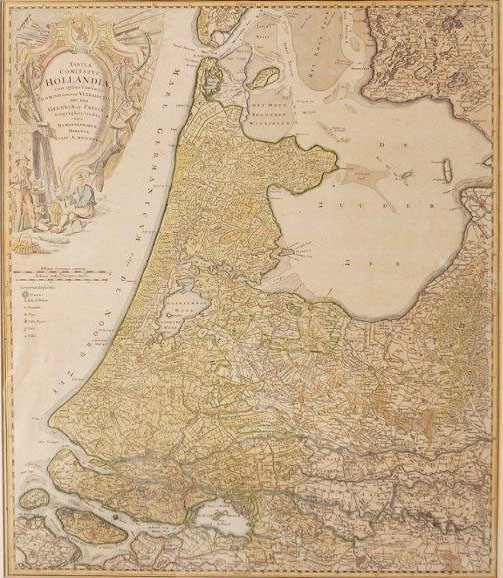
1845-1880 'Early years'
At the beginning of the 19th century, the Netherlands had low prosperity with low economic growth. For the insurance market, this meant that it was largely dominated by mutual funeral funds. Economic activity slowly increased, which also boosted the demand for insurance. This is how the modern insurers, as we know them today, were founded.
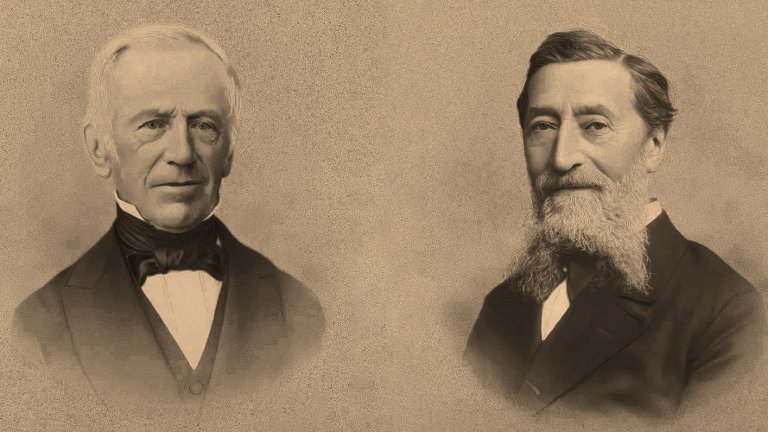
1845
Our founding fathers
In 1845, two cousins founded De Nederlanden van 1845, a fire insurance company in Zutphen. Beyond insuring against fire and other risks, the company distinguished itself by focusing on prevention. They even established a voluntary fire brigade, entirely staffed by employees of De Nederlanden. Nearly two decades later, in 1863, the Nationale Levensverzekering-Bank was established in Rotterdam. As one of the first Dutch life insurance companies, it quickly gained recognition for its actuarial approach, skilled physicians and expert commissioners.

1857
Spreading our wings
De Nederlanden was one of the first Dutch insurers to expand internationally by setting up local agencies. Its journey began in 1857 with the establishment of its first foreign agency in Batavia (now Jakarta, Indonesia), the capital of the Dutch East Indies. From there, the company expanded across Europe and eventually to other parts of the world.

1880
Social protection
Meanwhile, Nationale focused on new forms of social protection. In 1880, it introduced the first collective pension scheme in the Netherlands, providing retirement security for the employees of the Dutch Yeast and Spiritus Factory. This initiative was considered groundbreaking at the time, as other companies only started providing pensions for their employees in the early 20th century.
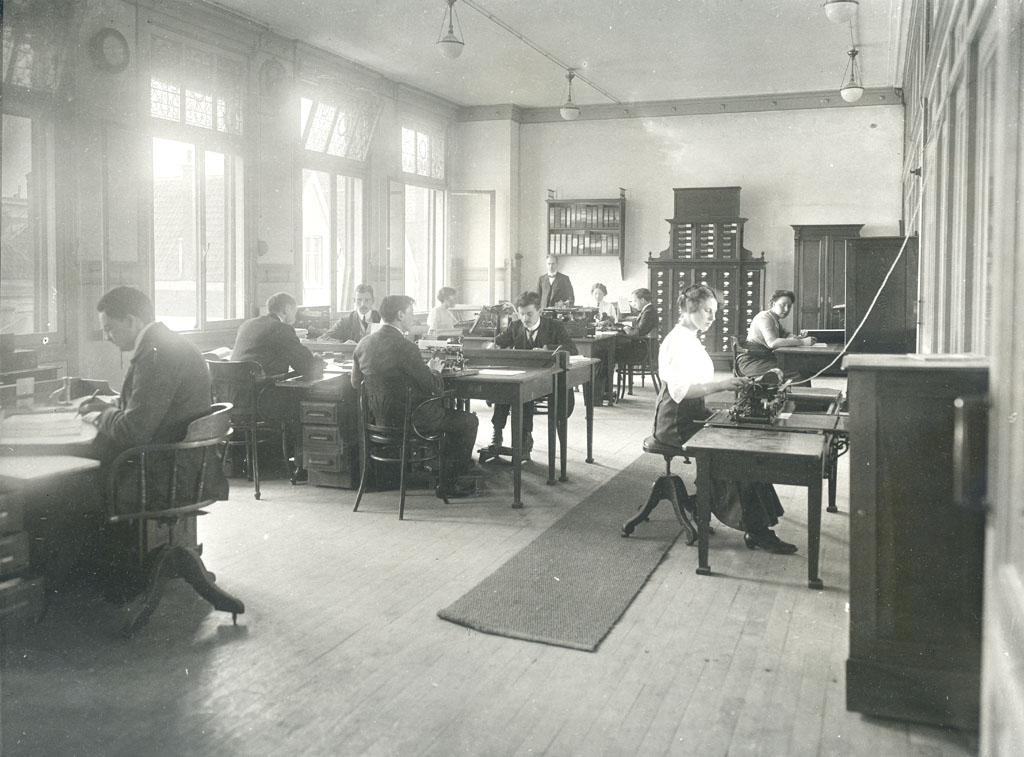
1900-1945 'Challenging times'
The new century brought progress through economic growth and internationalisation. However, the optimism was short-lived, as the world was soon confronted with economic depression and war. Despite this, insurance companies continued to develop, increasing the diversity of products, like car insurance, and expanding international markets.

1913
An attractive workplace
The early 20th century brought economic prosperity to the Netherlands, creating new opportunities for insurers. Life insurance companies expanded into Belgium through acquisitions, while modernising their organisations became a priority. De Nederlanden relocated its headquarters to The Hague and focused on creating an attractive workplace. Initiatives included trainings for talented colleagues, implementing a staff pension scheme, and offering holiday homes for lower-paid workers.

1930
The Great Depression
The global economic crisis of the 1930s led to mass unemployment and wage cuts. During this challenging period, insurers faced declining premium income. Nationale, recognising the hardships of low-income citizens, provided insurance to those hit hardest by the depression.

1940
The Second World War
The Second World War had an enormous impact on the Netherlands and the Dutch people. Offices of both companies were bombed and destroyed and a total of 46 employees, including many Jewish colleagues, lost their lives during the war. The Nazis forced Jewish citizens to surrender their life insurance policies. After the war, delays in payments to Holocaust survivors further compounded the injustices. In 1999, NN, together with other Dutch insurance companies, helped set up a fund to rectify past wrongs and provide reparations to the Jewish community.

1945-1990 'New times'
The Netherlands entered a period of rebuilding and economic growth after the destruction suffered during the Second World War. The insurance market continued to expand. Competition also grew, changing the dynamics of the industry.

1945
Rebuilding
After the Second World War, The Netherlands started a period of reconstruction, also known as the ‘wederopbouw.’ With cities in ruins, there was an urgent need to rebuild homes, schools, factories and shopping centres. NN’s predecessors played an important role in this effort by helping to finance the construction of housing estates and key infrastructure. In addition, special insurance policies and funds were set up to support and cover the risks of reconstruction.

1963
The birth of Nationale-Nederlanden
In 1963, De Nederlanden van 1845 and the Nationale Levensverzekering-Bank merged to form Nationale-Nederlanden in response to increasing competition in the Dutch insurance market. The merger combined their strengths, creating a company with a solid domestic market position and an international focus. This union also bolstered financial strength, setting the stage for further expansion.

1964
International expansion
From the 1960s, Nationale-Nederlanden accelerated its international expansion. Moving away from working only with local agents, the company shifted its strategy to acquiring foreign companies, focusing mainly on North America and Australia—regions where many Dutch emigrants had settled after the war.

1970
Increased visibility
In 1970, Nationale-Nederlanden introduced its now-iconic orange N logo. The rebranding gave the company greater visibility through advertising but also through sports sponsorships. In 1992, Nationale-Nederlanden became the sponsor of the Dutch national soccer team.

1973
Automation
The continued growth of Nationale-Nederlanden contributed to a sharp increase in administrative work, driving the need for automation. Following the purchase of the first computer in 1957, the company created its first automation department in 1973, gradually automating the most labor-intensive processes. Personal computers were introduced across the company.

1978
New markets
In the 1970s and 1980s, Nationale-Nederlanden started greenfield businesses in various markets that were opening up for life insurances and foreign investments. New offices opened in Spain and Greece, while in Japan, the company became the first European insurer admitted to the Japanese market.
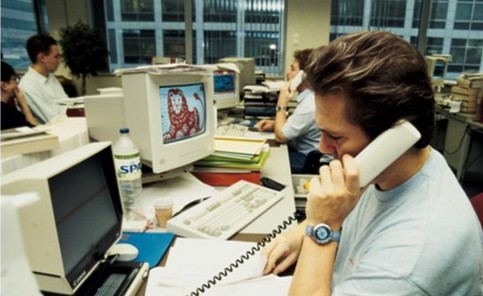
1990-2014 'Changing world'
In the 1990s, the financial industry experienced a period of consolidation, with a series of mergers. However, the global financial crisis of 2008 changed everything and caused a severe economic downturn, significantly affecting the industry.

1991
ING Group
In 1991, Nationale-Nederlanden merged with the national postal bank, NMB Postbank to form the Internationale Nederlanden Group (ING). The merger provided Nationale-Nederlanden with a large additional distribution channel. Through strategic acquisitions across the US, Asia and Europe, ING grew into one of the world’s largest bancassurers. In the post-Cold War era of the early 1990s, ING launched more greenfield insurance businesses across Central Europe (Hungary, Czech Republic, Poland, Slovakia, Romania).

2008
Global financial crisis
The 2008 global financial crisis had a major impact on ING, forcing it to apply for support from the Dutch government. Partly as a result of this, the European Commission forced ING to split its banking and insurance businesses and sell certain business activities. The remaining insurance business, which now comprises activities in Europe and Japan, was renamed NN Group and prepared for a public listing.
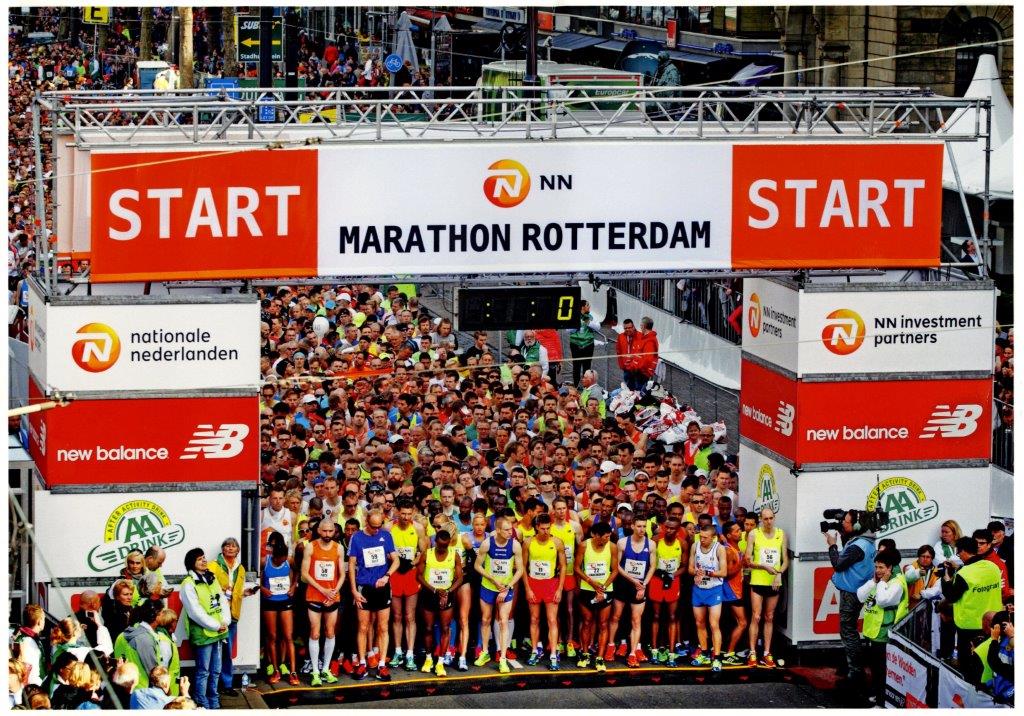
2014 –Today 'A new beginning'
Becoming a listed company ensured that we could retain our history, whilst also paving the way for a modern business that looks positively towards the future. Our strength as an organisation meant that we could manage the upheaval of Covid 19, as a stronger more inclusive company with a clear focus on our business and societal responsibilities.

2014
A new company
On 2 July 2014, NN Group made its debut on the Amsterdam Stock Exchange, marking the start of a new company. In the following years, NN further strengthened its position in the Netherlands through acquisitions of Delta Lloyd and Vivat Non-life. Internationally, NN acquired businesses in Poland and Greece while selling its asset management business, NN Investment Partners.

2020
Contribution to society
As part of its commitment to contribute to society, NN launched its community investment programme in 2014 and published its first sustainability report. In the following years, NN took further steps in its sustainability journey. In 2020, it announced its first net-zero emissions target for its investment portfolio, later followed by targets for its insurance and mortgage portfolios.

2020
Covid-19 pandemic
NN responded swiftly to the Covid-19 pandemic in 2020, supporting the well-being of colleagues, customers, business partners, and society at large. To support customers in financial distress, NN provided extra cover for restaurants and the hospitality industry, and mortgage and consumer loan payment breaks. The pandemic accelerated existing trends in remote working and digitalisation.

2020
Inclusive workplace
To foster a more diverse and inclusive workplace, NN introduced a target for women in senior management positions. It also introduced ‘You matter’ leave, enabling colleagues to take time off for an exceptional situation, such as grieving the loss of a loved one or a transition process among others.
Historical collection
The History Department at NN Group preserves and provides access to records and permanent items of historic importance of our more than 180 years of history. The collection contains archives, advertising materials, objects and photos. We are pleased to offer you a selection of articles of some of the more remarkable items in our collection.
 Historical collection
Historical collection
Engeltje, the first person insured by the Hollandsche Societeit
Historical collection
The Arithmometer - a unique calculating machine
Historical collection
Fire plates
Historical collection
Historical travel reports
Historical collection
Calendars
Historical collection
NN and Dutch architect Berlage
Historical collection
Bicycle insurance
Historical collection
The policy – an insurer’s showpiece
Historical collection
Fatum, fate
Historical collection
Office life in photos
Historical collection
Car insurance
Historical collection
The Insurance Game
Historical collection
Advertising film from De Nederlanden van 1845 in 1939
Historical collection
Remembering our employees, 1940-1945
Historical collection
Coffee at the office
Historical collection